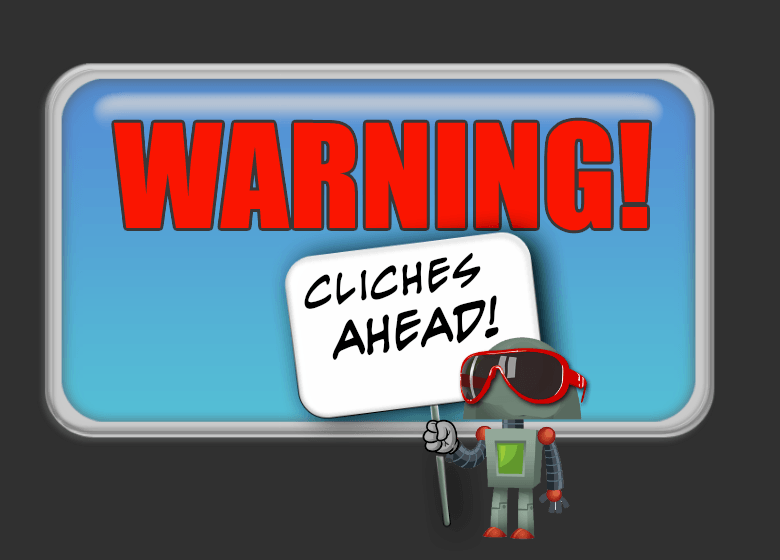
I love a statement about clichés I heard on, of all places, Grey’s Anatomy: “A cliché becomes a cliché for a reason - because it worked.”
I know. Clichés have been demonized since the beginning of time. A ‘good writer’ should never and would never use these pariahs of the written word. Right? They are the kiss of death to any budding writing career. Professional suicide. A sin against the gods of all that is holy on the printed page.
But, really. Aren’t we taking ourselves just a little bit too seriously?
I agree that clichés can be a sign of an unimaginative, possibly even lazy writer. I agree that with a little thought we writers can avoid these much maligned redundancies … maybe even be motivated to create some shiny new turn of phrase to flash at our readers. A future cliché in the making..
When it comes to the use of clichés, however, I’m conflicted. I sometimes have to agree with an oft quoted biblical axiom (cliché?). You know the one; “There is nothing new under the sun.”
Most authors are already so concerned about word count they don’t welcome the additional pressure of having to dodge any dreaded clichés that might inadvertently creep into their work. To do so often necessitates succumbing to unwanted verbiage when they know there’s a perfectly good three or four word phrase that would sum things up quite nicely—-if only it weren’t a cliché.
I can tell you one area in particular, however, in which the ‘no cliché’ rule does not apply. Dialogue.
Writing smooth, realistic dialogue is a goal to which every author aspires. It’s a challenge and a skill that takes a great deal of work to master. We want our characters to sound like real people and real people use clichés in their everyday conversation.
They just do.
In fact, if your characters are not using clichés, chances are your dialogue is going to sound stiff and unnatural.
Any dialogue that flows smoothly from the mouths of our characters is going to contain the occasional cliché. Think about it. We don’t edit our words as we speak to our friends, family and coworkers. We aren’t being ever watchful lest a dreaded cliché should find its way into our conversation.
And, if it does, our listeners are not going to recoil in shock or revulsion. People - real people - speak in clichés every day. Deal with it! So go ahead and allow your characters to be human.
With practice and a reasonable amount of experience, most writers find that balance in which clichés exist, but don’t dominate their writing. There will be times in which a cliché is not only the right, but the only, choice. Just don’t get crazy with them because, generally, it’s still best to avoid clichés like … the plague.

